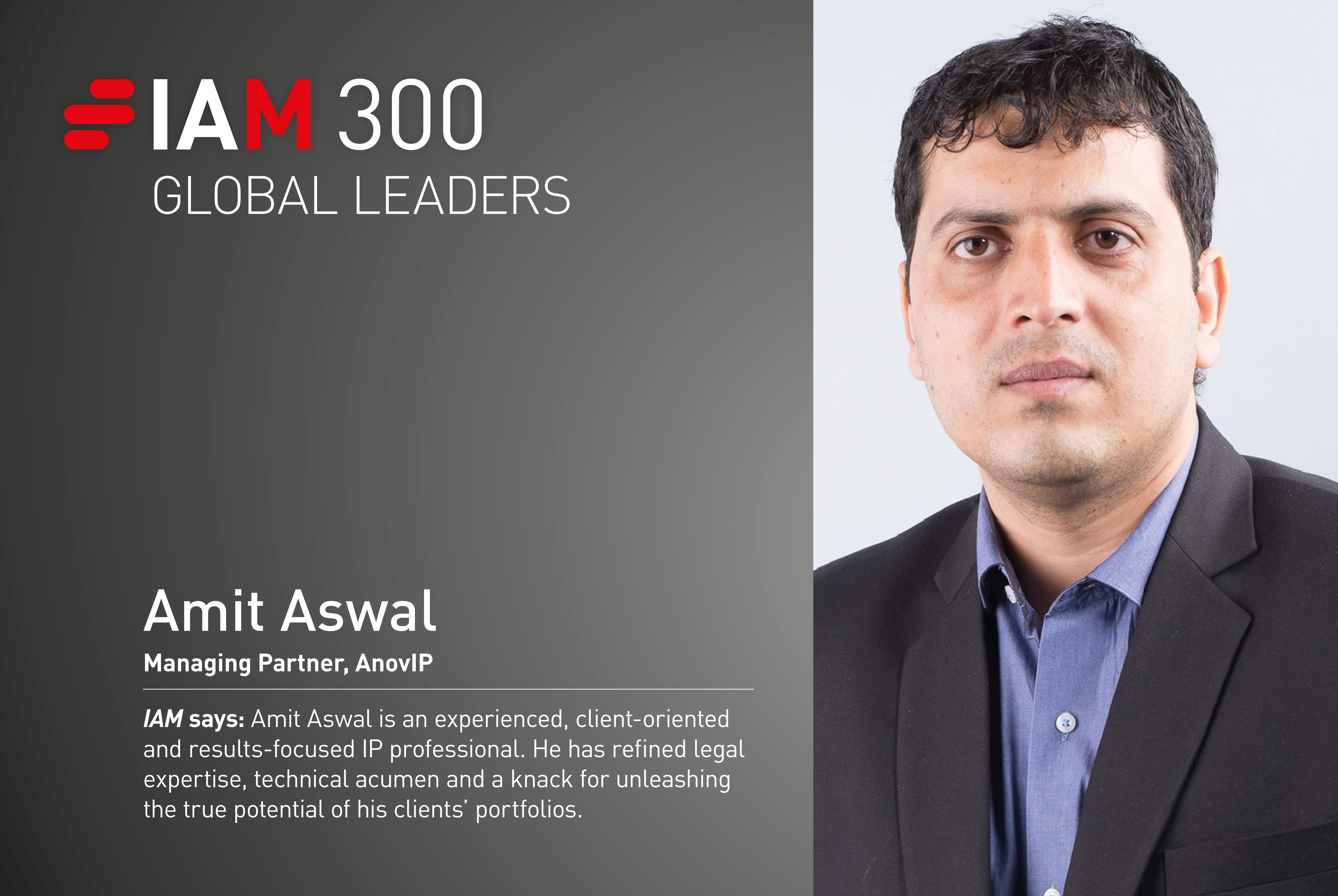Amit Aswal
You have extensive experience of IP monetisation - how have attitudes to this shifted throughout the course of your career?
In its nascent stages, intellectual property was predominantly perceived to be a protective tool. However, the IP landscape has undergone a remarkable evolution since then, the driving force being the recognition of intellectual property’s economic value. Companies are tapping into it for revenue through licensing and tech transfer. Given current levels of competition, intellectual property has become a key differentiator.
Companies actively seek innovative ways to monetise their IP assets, leveraging them to gain a competitive edge. Globalisation has also expanded the reach and impact of such assets. Organisations now look beyond national borders, exploring opportunities to monetise their intellectual property on a global scale. Crucially, technological advancements (eg, AI and data analytics) have simplified the monetisation process. The proliferation of start-ups has also injected fresh vitality into the realm; many start-ups rely heavily on IP licensing and partnerships to fund their growth and development.
At anovIP, we have been at the forefront of this attitude shift. Our specialised services, including patent analytics and monetisation strategies, are designed to help organisations unlock the full potential of their intellectual property. We work closely with clients to identify opportunities, navigate complex licensing agreements and maximise the value of their IP portfolios.
You are known for your multi-jurisdictional IP filing and prosecution. How do you adapt your prosecution strategy to take account of country-to-country differences?
Our multi-jurisdictional IP filing and prosecution strategy encompasses research, collaboration and adaptive monetisation strategies to ensure comprehensive protection and value realisation for our clients' IP assets. This strategy is customised for every client to ensure that their IP assets are filed, protected and leveraged effectively in diverse jurisdictions.
We conduct meticulous research to understand the unique legal, cultural and business landscape of each country. This informs our filing strategy so that we can ensure compliance with local laws and optimise the chances of successful prosecution. We collaborate closely with local experts and counsel – their insights guide us in navigating specific procedures, timelines and examination standards. As we progress, prosecution strategies are amended to reflect common objectives across submissions in multiple jurisdictions to ensure that adequate and almost identical protection is secured, irrespective of country-to-country differences.
Often, we align our monetisation strategy with our prosecution strategy to meet the dynamic demands of local markets. This might involve considering the future prospects of technology transfers or IP sales, as well as the economic and legal context of each jurisdiction.
As an IP attorney in South Asia, what is your opinion on how the business landscape has evolved with respect to IP recognition and adoption?
Intellectual property was often undervalued and viewed primarily as a means of protection, but, over the years, there has been a notable shift in perspective. Businesses are increasingly recognising its strategic value.
South Asia has witnessed a surge in IP filings and a growing emphasis on IP protection, fuelled by increased awareness, globalisation and the rise of start-ups and tech-driven enterprises. Moreover, the adoption of intellectual property as a vital tool for innovation, competitiveness and revenue generation has become more pronounced.
As technology advances, AI and data analytics are being harnessed to make informed IP decisions. It is heartening to see businesses in South Asia embrace intellectual property as a cornerstone of growth, reflecting a maturing and forward-thinking approach.
You specialise in creating and executing IP strategies. What are some of the key skills necessary for someone working in this space?
A successful IP strategist combines legal acumen, strategic thinking, analytical prowess, communication finesse and adaptability to craft and execute effective IP strategies that drive innovation and business success.
In this dynamic realm, several skills are indispensable. A deep understanding of laws – both globally and in specific jurisdictions – is fundamental. This knowledge forms the foundation upon which effective strategies are built. Strategic thinking is crucial; this involves not only protecting intellectual property but leveraging it for competitive advantage and revenue generation. This necessitates a forward-looking approach that aligns with organisational goals.
Strong analytical skills are equally essential. IP strategy often involves assessing market trends, evaluating competitive landscapes and identifying potential risks and opportunities. Data-driven decision making is central to success. Effective communication and negotiation skills are vital for securing partnerships, licensing agreements and resolving disputes. IP professionals must clearly and persuasively convey complex ideas.
Amit Aswal
Managing Partner
[email protected]
Founder of anovIP Amit Aswal has more than 15 years of experience and excels in IP portfolio scouting, evaluation and sales, strategy formulation, negotiation, licensing and royalty determination. As a distinguished patent and trademark attorney, Mr Aswal's visionary leadership has elevated anovIP to the forefront of IP services, offering innovative solutions tailored to diverse business needs, academia and legal firms. This has established him as a pioneering figure in IP strategy and innovation.
